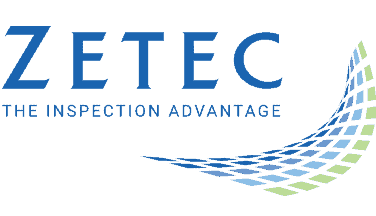Eddy Current Testing for Quality Assurance of Medical Device Materials and Components

Quality inspections are critical to many manufacturing processes, particularly those where the products directly affect the health and safety of users. We’ve all heard of problems and even tragedies associated with food, automotive, and medical devices that were poorly designed, tested, or manufactured. The response to those failures is presenting a growing volume of government and industry regulations intended to prevent these problems.
In the US, CFR Title 21 covers the rules of the Food and Drug Administration whose Center for Devices and Radiological Health (CDRH) monitors manufacturers of medical devices. As part of the regulatory process, the FDA regularly reviews medical device manufacturers to verify compliance.
The importance of quality assurance in medical device manufacturing is even acknowledged by ASQ, a global organization dedicated to improving the quality of products. ASQ devotes considerable resources regarding quality assurance for medical devices and understands that medical device manufacturers are challenged to balance the demands of regulatory requirements while containing production costs.
Quality Assurance of Materials and Components: The Role of Eddy Current Testing
Material consistency and quality are paramount for all medical devices, particularly those components that come in direct contact with the human body, whether temporarily or permanently. Eddy current is an efficient and cost-effective method for identifying flaws and defects in many of the conductive materials such as wire and tubing used in the manufacturing of medical devices. Eddy current testing can also ensure that heat treatment and annealing processes required for molded or machined medical components have not jeopardized their structure or integrity. A few examples below illustrate the critical role that eddy current testing plays in the quality assurance of medical device materials and components.
Stainless and Titanium Machined Into Components
Austenitic 316 stainless, martensitic 440 and 420 stainless steel, and titanium rods are machined to create pins, screws, supports rods (scoliosis treatments) used in orthopedic surgeries, as well as dental implants. Prior to machining, the metals must be inspected for structural consistency to ensure the absence of production seams and identify pitting that could promote infections once implanted in the body.
Medical-Grade Tubing
Medical tubing used for the manufacture of syringes, catheters, and endoscopic instruments—as well as tubing that transports oxygen, saline solutions, or blood in medical devices—must be manufactured to consistent specifications, often within extremely close tolerances. Inspections of medical-grade tubing used for syringes requires the ability to recognize microscopic defects that affect wall thickness, distortions that would impede fluid flow or cause undue discomfort, or voids that increase the risk of syringe breakage.
Nitinol Wire
The super-elastic characteristic of nitinol wire is ideal for medical uses in heart valves, stents, superelastic needles, and as alternatives to sutures. Orthodontists use nitinol for archwires that connect brace brackets. Eddy current inspection looks for cracks and inclusions that may develop during the nitinol wire production process and lessen its efficacy and lifespan.
Endoprostheses
Artificial knee and hip joints—endoprostheses—made from stainless steel, cobalt alloys, and titanium have brought mobility to countless individuals who might otherwise be confined by painful joints. Eddy current testing allows manufacturers to efficiently verify the quality and integrity of materials and components by identifying surface and subsurface defects that would lead to complications, once implanted, and in the worst case, replacement of the endoprosthesis.
Eddy Current for a Wide Range of Quality Assurance Needs
Eddy current testing is an efficient, cost-effective means to ensure the quality of materials and components used in the manufacturing of medical devices. The method allows manufacturers to test a wide variety of wire, tubing, rods, and endoprostheses for potential defects or flaws that would jeopardize their intended function.
In order to achieve the greatest benefit from an investment in eddy current solutions that address the wide range of testing needs, manufacturers should look for eddy current testing solutions that:
- Support a wide range of probe designs precisely matched to the dimensions and properties of the materials and components being tested.
- Offer the option to design custom probes to meet unique inspection requirements.
- Include a powerful processor combined with an onboard solid-state drive for rapid data acquisition and analysis.
- Can be easily adapted or incorporated into the production process to facilitate rapid, automated inspections.
- Facilitate easy setup and calibration for each of your various material and component testing processes.
- Automatically create and maintain digital records of testing results in support of compliance requirements.
The power and flexibility provided by the latest advancements in eddy current testing technologies and solutions enable manufacturers to meet their quality assurance for medical device materials and components requirements and do efficiently and cost-effectively.
Medical device manufacturers obtain the greatest value from eddy current solutions when they are designed to meet their unique testing requirements. Zetec is a worldwide leader in developing nondestructive testing (NDT) technologies. We offer high-performance solutions in both eddy current and ultrasonic testing that help medical device manufacturers address their unique quality assurance needs. Contact us today to learn more.

Zetec’s designers are industry-leading experts in ultrasonic and eddy current technologies, and we can help you navigate any of our NDT testing solutions or devices.
